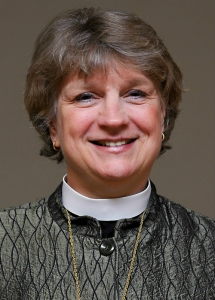 By Bishop Ann Svennungsen
By Bishop Ann Svennungsen
All things being equal, I’d rather avoid conflict. If you asked me when pastoral ministry was most challenging, I would immediately think of times when the congregations I served were most conflicted. I suspect that is true for most rostered leaders. I still remember a vivid dream the night before a tense congregational vote three decades ago.
Sometimes I think Lutherans – especially those of northern European descent – have a rather simplistic interpretation of Scripture around issues of conflict. We’ve come to believe that a sure sign of God’s favor is when our congregation is free of conflict. Yes, God seeks the unity of the church. And, yes, there are texts that affirm Jesus’ desire that we “might all be one” and Paul’s prayer “that there be no dissension in the body.”
“Avoidance of difficult conversations can be a significant impediment to true community.”
Still, the witness of Scripture is more honest and nuanced than a simplistic notion that if you have enough faith your congregation will be blessed with peace and tranquility; that disagreement and differing opinions are a sign of God’s disfavor. Indeed, I think our avoidance of difficult conversations can be a significant impediment to true community and the discernment of God’s way forward as a congregation.
SCOTT PECK TALKED ABOUT conflict-free communities as “pseudo-communities.” Patrick Lencioni argues that “fear of conflict” is one of five things that make for a dysfunctional team. Oh, this can be frightening territory. I am as conflict-averse as the next person. Conflict, in and of itself, is not holy – even though there can be holy conflict. Sometimes conflict is just the result of people feeling grumpy. Conflict “for conflict’s sake” is not the goal.
But if we in the church are to talk about God’s call to radical generosity, about racial justice and white privilege, not to mention the radical, countercultural news that all are sinful and set free by grace alone; we may need to learn some new ways to welcome difficult conversations.
“Conflict, in and of itself, is not holy – even though there can be holy conflict.”
A good place to start is the ELCA Moral Deliberation document or the Minnesota Council of Churches Respectful Conversations. It takes lots of prayer, the building of trust, a shared covenant of love and respect, and a willingness to try, to fail, to forgive, to try again.
Already in chapter 15 of Acts we find the first Christians in a heated conflict about the way to welcome Gentiles into the community formed by faith in Christ, crucified and risen for the sake of the world. Praise God they had the courage to engage – and praise God for their discernment that made for a new way into God’s abundant future.

